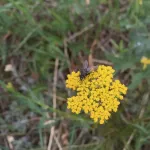(Press-News.org) Videoconferences may be less exhausting if participants feel some sense of group belonging, according to new research published by the American Psychological Association.
As remote work and the use of videoconferences have dramatically increased during the coronavirus pandemic, more people are fatigued from meeting through computer screens instead of in person. In this study, 55 employees in various fields in the United States were surveyed about their feelings about videoconferences. The researchers thought longer meetings and being on video would cause the most fatigue, but their findings surprised them, said lead researcher Andrew Bennett, PhD, an assistant professor at Old Dominion University.
"We expected that aspects of being on video would be related to fatigue, such as watching everyone's faces closely on a screen or even watching yourself, but we didn't find this to be true in our study. Longer meetings also didn't impact fatigue," Bennett said. "However, the importance of feeling a sense of belonging or connection with the group really minimized fatigue after a videoconference."
Bennett's team decided to study videoconference fatigue, or "Zoom fatigue," because they all felt exhausted after their first videoconferences together when they began working remotely during the early days of the pandemic. The research was published online in the Journal of Applied Psychology.
The study participants received nine hourly surveys every day for five consecutive working days last year. Out of the surveys sent, participants completed more than 1,700 surveys and participated in an average of five to six videoconferences during the week. The majority of participants were male (58%) and white (73%) with an average age of 33.
One participant said videoconferences "can be taxing on the mind and spirit," while another was "tired of being in them" and "extra tired after being in them." Only 7% of the participants didn't report any signs of videoconference fatigue.
Watching oneself on a webcam or turning the webcam off had no statistically significant impacts on post-meeting fatigue, the study found. Participants reported conflicting feelings about using the webcam, with some saying it was exhausting always to be staring at the screen while others felt it was impersonal when participants switched off their webcams.
"Everyone just wants to get in and get out, log in and log off," one participant reported. "There's very little chatter before and after the meeting like there would be in real life."
That chatter may help build a sense of group belonging, which had a marked effect in reducing videoconference fatigue, the researchers said. There also appeared to be a sweet spot in the early afternoon when videoconferences caused less fatigue than at other times of the day.
Based on their findings, the researchers made some recommendations to help reduce videoconference fatigue:
Hold videoconferences in the early afternoon.
Enhance perceptions of group belongingness, including time for small talk before or after the meeting or breakout rooms where people could talk about their interests (sports, movies, etc.).
Establish basic meeting rules, such as whether to keep webcams on and refraining from doing other work.
Take breaks by looking away from the screen, standing up and walking around.
"We know videoconferences are helpful," Bennett said. "We get more emotional and nonverbal information from them, but that doesn't mean everything needs to be done in a videoconference. Sometimes a phone call or email is more effective and efficient."
INFORMATION:
Article: "Videoconference Fatigue? Exploring Changes in Fatigue after Videoconference Meetings During COVID-19," by Andrew A. Bennett, PhD, Emily D. Campion, PhD, Sheila K. Keener, PhD, Old Dominion University; and Kathleen R. Keeler, PhD, Ohio State University;
Journal of Applied Psychology, published online April 19, 2021.
Contact: Andrew A. Bennett, PhD, may be contacted at aabennet@odu.edu.
A copy of the article can be found online at https://www.apa.org/pubs/journals/releases/apl-apl0000906.pdf
The American Psychological Association, in Washington, D.C., is the largest scientific and professional organization representing psychology in the United States. APA's membership includes nearly 122,000 researchers, educators, clinicians, consultants and students. Through its divisions in 54 subfields of psychology and affiliations with 60 state, territorial and Canadian provincial associations, APA works to advance the creation, communication and application of psychological knowledge to benefit society and improve people's lives.
The next time you go for a hike, take an extra moment to appreciate the seemingly ordinary life all around you. A house fly, humble yarrow weed and other "generalist" plants and pollinators play a crucial role in maintaining biodiversity and may also serve as buffers against some impacts of climate change, finds new University of Colorado Boulder research.
The findings, published this month in Ecology, provide valuable insights for prioritizing the conservation of species that contribute to the strength of ecological communities.
"A lot of times, conservation efforts are geared toward things that are rare. But oftentimes, species that are common are also in decline and could go extinct, and that could have really big repercussions for maintaining biodiversity," ...
New research is shining light on the importance of farmers' markets' ability to mitigate potential disruptions to distribution networks in the face of system shocks like the COVID-19 pandemic.
In a recent study, the researchers found the markets' regional characteristics play a key role in the decision to move all or parts of their operations online -- and how that decision can help or hinder its surrounding community.
"By building online communities through their social media and website tools, farmers' markets can play a role in keeping the community connected and supporting a sustainable and just food system through the pandemic and beyond," said researcher Josalyn Radcliffe, a PhD student in Waterloo's School of Public Health and ...
Sophia Antipolis - 17 April 2021: Elevated blood pressure, high cholesterol and diabetes increase the risk of heart disease. But a large study today reveals that in people with these conditions, increasing activity levels is associated with a reduced likelihood of heart events and mortality. The research is presented at ESC Preventive Cardiology 2021, an online scientific congress of the European Society of Cardiology (ESC).1
Study author Dr. Esmée Bakker of Radboud University Medical Center, Nijmegen, the Netherlands said: "Previous research showed that improvements in physical activity are beneficial to health. However, those studies were performed in the general population. In our study, we were interested to see if there were similar effects in individuals with cardiovascular ...
Tokyo, Japan - Researchers from Tokyo Metropolitan University and Hosei University have discovered a new species of large, tropical centipede of genus Scolopendra in Okinawa and Taiwan. It is only the third amphibious centipede identified in the world, and is the largest in the region, 20 cm long and nearly 2 cm thick. It is also the first new centipede to be identified in Japan in 143 years, testament to the incredible biodiversity of the Ryukyu Archipelago.
Scolopendra is a genus of large, tropical centipede, one of the original genera named by the father of modern taxonomy himself, Carl Linnaeus. They are strong predators in any soil ecosystems they inhabit, with around 100 different species found in tropical regions around the world. Of these, only five have been ...
Research shows that a new telescope could detect a potential signature of life on other planets in as little as 60 hours.
"What really surprised me about the results is that we may realistically find signs of life on other planets in the next 5 to 10 years," said Caprice Phillips, a graduate student at The Ohio State University, who will share preliminary findings at a END ...
From engineered pandemics to city-toppling cyber attacks to nuclear annihilation, life on Earth could radically change, and soon. Scientists will forecast the fate of the planet at a END ...
Tarantulas are among the most notorious spiders, due in part to their size, vibrant colors and prevalence throughout the world. But one thing most people don't know is that tarantulas are homebodies. Females and their young rarely leave their burrows and only mature males will wander to seek out a mate. How then did such a sedentary spider come to inhabit six out of seven continents?
An international team of researchers, including Carnegie Mellon University's Saoirse Foley, set out on an ancestry.com-like investigation to find the answer to this question. They looked to the transcriptomes, ...
Faced with the tragic loss of the Arecibo observatory in Puerto Rico and the often prohibitive cost of satellite missions, astronomers are searching for savvy alternatives to continue answering fundamental questions in physics.
At a END ...
JUPITER, FL--Making memories involves more than seeing friends or taking photos. The brain constantly adapts to new information and stores memories by building connections among neurons, called synapses. How neurons do this--reaching out arm-like dendrites to communicate with other neurons--requires a ballet of genes, signaling molecules, cellular scaffolding and protein-building machinery.
A new study from scientists at Scripps Research and the Max Planck Florida Institute for Neuroscience finds a central role for one signaling molecule, a long, noncoding RNA that the scientists named ADEPTR.
Using a variety of technologies, including confocal and two-photon microscopy, they track ADEPTR's moves, watching as it forms, travels, amasses at the ...
AMES, Iowa - A lot is riding on the continued advancement of plant sciences.
Take the food supply, for starters. Climate change and population growth will continue to pose challenges in the future, and crop production will require innovation and progress by plant scientists in order to keep pace. It isn't an overstatement to say that populations around the world will go hungry if plant science stagnates, said Gustavo MacIntosh, a professor in the Roy J. Carver Department of Biochemistry, Biophysics and Molecular Biology at Iowa State University.
"At the end of the day, either you eat plants or you eat food that ate plants," MacIntosh said. "Plants are the basis for the food we have."
MacIntosh predicts ...






